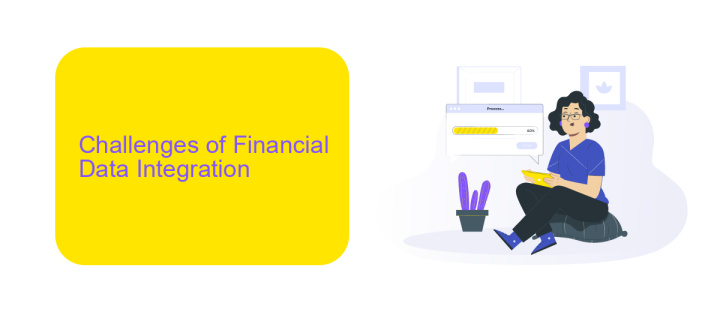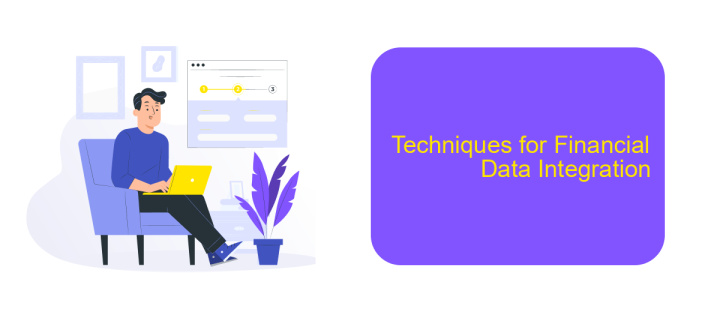Financial Data Integration
Financial data integration is a crucial process for modern businesses, enabling seamless consolidation and analysis of financial information from various sources. By integrating financial data, organizations can achieve greater accuracy, efficiency, and insight in their financial reporting and decision-making processes. This article explores the key benefits, challenges, and best practices associated with financial data integration, highlighting its importance in today's data-driven economy.
Introduction
Financial data integration is a crucial aspect for businesses aiming to streamline their financial operations and enhance decision-making processes. By consolidating financial data from various sources, organizations can achieve a comprehensive view of their financial health, enabling better strategic planning and operational efficiency.
- Improved accuracy and consistency of financial data
- Enhanced real-time reporting and analytics capabilities
- Reduced manual data entry and associated errors
- Seamless integration with existing financial systems
One of the tools that facilitate financial data integration is ApiX-Drive. This service allows businesses to automate data transfers between different financial platforms, ensuring that data is always up-to-date and accurate. By leveraging such tools, companies can not only save time but also reduce the risk of human error, ultimately leading to more informed financial decisions and improved overall performance.
Challenges of Financial Data Integration

Financial data integration poses numerous challenges, primarily due to the complexity and variety of data sources. Different financial systems and platforms often use disparate data formats, making it difficult to achieve seamless data flow. Additionally, ensuring data accuracy and consistency across these diverse sources is a significant hurdle. Organizations must also navigate regulatory requirements and compliance issues, which can vary widely across different jurisdictions, adding another layer of complexity to the integration process.
Moreover, the integration process often requires sophisticated technical expertise, which may not be readily available within the organization. Utilizing services like ApiX-Drive can mitigate some of these challenges by offering a user-friendly interface and automated workflows that simplify the integration of various financial data sources. However, even with such tools, maintaining data security and privacy remains a critical concern, as financial data is highly sensitive. Therefore, organizations must implement robust security measures to protect against data breaches and unauthorized access during the integration process.
Benefits of Financial Data Integration

Financial data integration offers numerous advantages to businesses of all sizes. By consolidating financial information from various sources into a single, unified system, companies can make more informed decisions and improve operational efficiency. This process reduces the risk of errors and ensures that all financial data is up-to-date and accurate.
- Enhanced Decision-Making: Access to comprehensive financial data enables better strategic planning and forecasting.
- Improved Accuracy: Automated data integration minimizes human errors and discrepancies in financial records.
- Time Savings: Streamlining data collection and reporting processes frees up valuable time for other critical tasks.
- Cost Efficiency: Reducing manual data entry and reconciliation efforts lowers operational costs.
- Regulatory Compliance: Ensuring that all financial data is accurate and up-to-date helps meet regulatory requirements more easily.
For businesses looking to implement financial data integration seamlessly, tools like ApiX-Drive can be invaluable. ApiX-Drive offers automated data synchronization between various financial systems and applications, ensuring that all information is consistently accurate and readily available. By leveraging such services, companies can focus more on strategic initiatives rather than getting bogged down by data management tasks.
Techniques for Financial Data Integration

Financial data integration is a crucial process for businesses aiming to consolidate diverse financial data sources into a unified system. This process enhances decision-making, financial reporting, and overall operational efficiency. Various techniques and tools are employed to achieve seamless financial data integration.
One of the primary techniques involves the use of APIs (Application Programming Interfaces) to connect different financial systems. APIs facilitate data exchange and real-time updates, ensuring that all integrated systems are consistently up-to-date. Data warehousing is another common method, where data from multiple sources is collected, stored, and managed in a central repository.
- ETL (Extract, Transform, Load) Processes
- Data Mapping and Matching
- Middleware Solutions
- Cloud-Based Integration Platforms
Services like ApiX-Drive offer robust solutions for financial data integration. ApiX-Drive allows businesses to automate data transfers between various financial applications without the need for complex coding. By leveraging such services, companies can streamline their financial data workflows, reduce manual errors, and save valuable time.
- Automate the work of an online store or landing
- Empower through integration
- Don't spend money on programmers and integrators
- Save time by automating routine tasks
Conclusion
Financial data integration is a critical aspect for businesses aiming to streamline their operations and make data-driven decisions. By consolidating financial information from various sources, companies can achieve greater accuracy, reduce manual errors, and enhance overall efficiency. The integration process, however, demands careful planning and the right tools to ensure seamless data flow and compatibility across different systems.
Services like ApiX-Drive play a pivotal role in simplifying financial data integration. ApiX-Drive offers a user-friendly platform that allows businesses to automate data transfer between numerous applications without extensive technical expertise. This not only saves time but also ensures that financial data is up-to-date and readily accessible for analysis. In conclusion, leveraging advanced integration services can significantly enhance the financial management capabilities of any organization, paving the way for more informed decision-making and sustained growth.
FAQ
What is Financial Data Integration?
Why is Financial Data Integration important for businesses?
What are the common challenges in Financial Data Integration?
How can businesses automate Financial Data Integration?
What should be considered when choosing a Financial Data Integration solution?
Routine tasks take a lot of time from employees? Do they burn out, do not have enough working day for the main duties and important things? Do you understand that the only way out of this situation in modern realities is automation? Try Apix-Drive for free and make sure that the online connector in 5 minutes of setting up integration will remove a significant part of the routine from your life and free up time for you and your employees.


